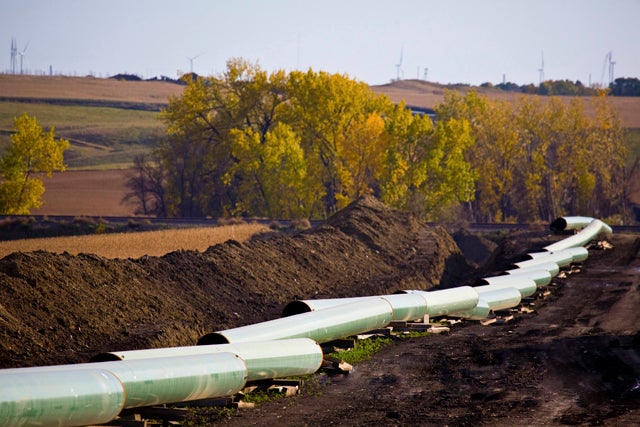Today the State Department released yet another positive environmental review for the northern portion of the Keystone XL pipeline project. The State Department approved the original pipeline route through Nebraska, which was supposedly less environmentally friendly, without any problems.
It is no surprise, then, that the State Department also seems to look favorably on this second iteration of the project in this fourth report—a report that should have been unnecessary. For the record, the pipeline also received a stamp of approval from Nebraskans.
The project will accommodate up to 830,000 barrels of oil per day, create some 179,000 jobs on American soil, and continue good trade relations with a close ally. The benefits won’t stop with the oil sector, though—the Keystone project will have a positive ripple effect even in areas without the pipeline that will provide goods and services to support the pipeline.
It is a disappointing symptom of the Obama Administration’s anti-energy bias that the Keystone project was delayed for over a year, unnecessarily adding cost and delaying the jobs and oil the pipeline could provide. Sadly, this is not uncommon for conventional energy projects and more politically preferred ones alike.
This approval would be great news, except we have been here before—more than a year ago.
Before any real decision is made, there will be a 45-day comment period and some time for the State Department to consider the comments. Then the notably anti-carbon Secretary of State, John Kerry, will give his recommendation and the final decision will lie with the President.
President Obama should have approved this pipeline last year when he received a very similar positive report based on multiple environmental impact reviews. Let’s hope he wholeheartedly approves the project without delay this time.
Should the President reject Keystone again, Congress should wield its power to regulate commerce with foreign nations and approve the pipeline’s construction once the State Department again finishes its review of the rerouted project.
Though he will receive pressure from environmental activists, the President should remember why he has been (unduly) taking credit for the increased oil production in the U.S.—more oil is good for jobs, good for gasoline prices, and, in this case, good for international relations.
The more strident environmentalists who oppose the pipeline would do well to remember that Canada is not a third-world despoiler of nature. Its stringent standards ensure the petroleum will be produced safely. That icon of progressivism, Teddy Roosevelt, once said, “Conservation means development as much as it does protection.” That is, appropriate resource use is consistent with a conservation ethic.































